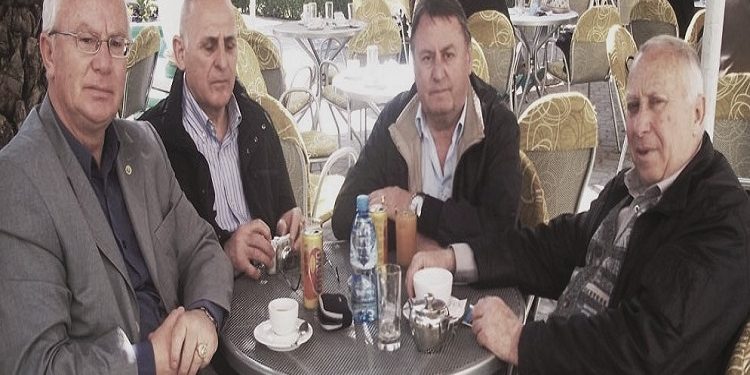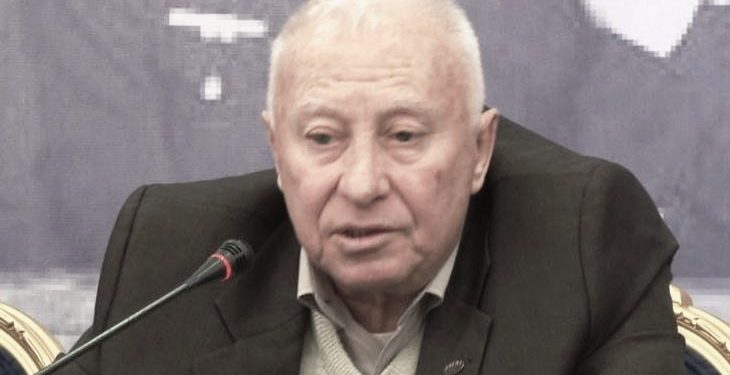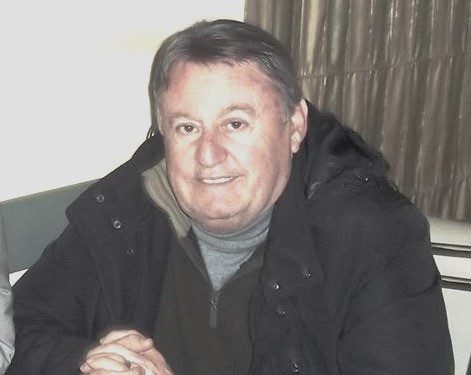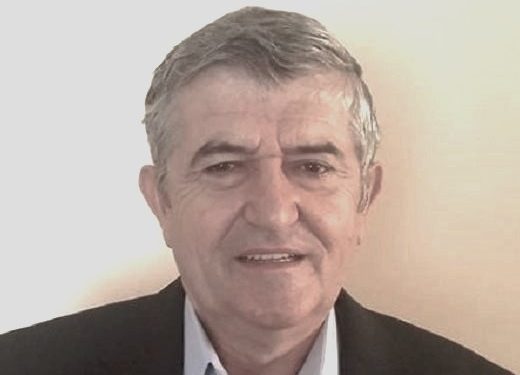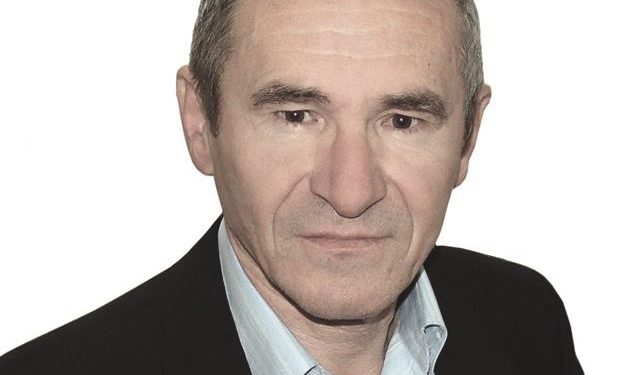By Hyqmet Zane
Memorie.al / Even after 64 years, the Sejko and Demi families remain victims of the former State Security of the communist dictatorship, which still holds them guilty despite having no fault and no graves – murdered, humiliated, mutilated, depersonalized, and taking with them the enigma of an event that has no comparison. It was 10 AM on Thursday, July 28, 1960, when a mob of officers and well-trained Security personnel for crimes against humanity arrested and committed that criminal atrocity against the intellectual and patriotic elite of the Çameri community, known today as: Teme and Taho Sejko, Tahir Demi, Shaban Ademi, Avdul Resuli, Sami Murati, Ali Xhelo, Jonuz Purrizo, Adem Osmani, and Asllan Veliu, among others.
Regarding this so-called “Çameri group,” labeled as “traitors” and with numerous other completely false epithets, everything has been said and reiterated in the basements of the former State Security according to the models of Stalinism that were fully implemented in Albania. The written media and television in Albania, through respected analysts such as Ferdinand Dervishi and Kastriot Dervishi, Dashnor Kaloçi, and Prof. Dr. Emine Sadiku (the first to write about this woman in 1991), as well as many others who were protagonists of the time, like Rrahman Parllaku and the Greek witness himself, Kosta Fili, as well as others who had the good intention to uncover the moments of those astonishing events, everything has received the stamp of truth.
Personally, as a journalist and a member of the Çameri community, I have written from time to time about these events that disrupted our lives with human dignity and have received confirmation of the accuracy of my writings. But on this 64th anniversary, I would like to refer to the descendants, the sons of these victims whom I have met and discussed with personally about what happened 64 years ago and how they feel about it after 64 years. Their stories are painful but necessary, as they and their families suffered the consequences of that communist genocide against the Çameri community, following the Greek genocide in 1944.
Raymond Sejko, the eldest son of Teme Sejko:
“I was playing cards with Sokoli, (my brother), when two men dressed in gray suits and caps entered our home. We didn’t recognize them, but shortly after, we heard our mother scream, and we understood that something bad had happened. We hurried to find out what was going on, but the Security officers did not allow us to enter the room where our mother and grandparents were, as they had begun to search the house. After an hour, the officers left, and we entered the room, where we saw our mother, who was extremely shaken and didn’t speak at all. Our grandmother took us out of the room and gave us the mandate. We were terrified, but we were young and didn’t fully understand what had happened. Mother didn’t speak until the next day. She told us again about our father’s arrest, but it was impossible for us to understand.
A few days later, we went to Vlorë. When we entered the house, we saw that everything was on the floor. The mess was so great that only the vandals of the State Security could have done such a thing. At that moment, I realized that things were very bad for us.
It was the beginning of September. I returned from school to find 3 or 4 officers and 2 civilians from the People’s Council of the neighborhood in the house. They were confiscating property. They left us with just our clothes and took everything else, such as: a spoon, a fork, a mattress, a blanket, etc. After that, we were removed from the house, and they put us into a basement room and a corridor where three other families lived, sharing one bathroom for everyone. If it weren’t for my maternal grandparents, I can’t imagine how things would have turned out for us. My grandfather had 4000 lekë from his pension at that time, which had to feed 5 people, while also paying the rent and electricity. There were many nights we went to bed without having dinner. Ten years ago, I gave an interview with a journalist at the newspaper ‘Panorama.’ It was the first time I spoke about my mother. I told him that he should write it as I was telling him. I want to read what you will publish. He wrote it as he wanted, and I didn’t approve it. Nevertheless, he published it as he wished?!
The irony of fate is that my mother, when she was 12 or 13 years old, was distributing communist leaflets. In February 1975, she wrote a notebook about the history of the family and about Sokoli, how he was tortured and executed at 23 years old, the youngest son of the family, without having done anything. At 5 AM on February 21, 1975, she was found dead in the yard of the building where we lived in Berat. I was arrested around 8 in the morning. This is the truth, not what was written in the Albanian newspapers that she committed suicide because I was arrested…?! The State Security had no plans to arrest me, but they intended to intern us all, including my grandfather and grandmother, by the end of February 1975.”
Hektor Sejko, son of Taho Sejko, the elder brother of Teme.
“It was the beginning of September. I returned from school to find 3 or 4 officers and 2 civilians from the People’s Council of the neighborhood in the house. They were confiscating property. They left us with just our clothes and took everything else, such as: a spoon, a fork, a mattress, a blanket, etc. After that, we were removed from the house, and they put us into a basement room and a corridor where three other families lived, sharing one bathroom for everyone. If it weren’t for my maternal grandparents, I can’t imagine how things would have turned out for us. My grandfather had 4000 lekë from his pension, which had to feed 5 people while also paying the rent and electricity. There were many nights we went to bed without having dinner.
Ten years ago, I gave an interview with a journalist at the newspaper ‘Panorama.’ It was the first time I spoke about my mother. I told him that he should write it as I was telling him. I want to read what you will publish. He wrote it as he wanted, and I didn’t approve it. Nevertheless, he published it as he wished?!
The irony of fate is that my mother, when she was 12 or 13 years old, was distributing communist leaflets. In February 1975, she wrote a notebook about the history of the family and about Sokoli, how he was tortured and executed at 23 years old, the youngest son of the family, without having done anything. At 5 AM on February 21, 1975, she was found dead in the yard of the building where we lived in Berat. I was arrested around 8 in the morning. This is the truth, not what was written in the Albanian newspapers that she committed suicide because I was arrested…?! The State Security had no plans to arrest me, but they intended to intern us all, including my grandfather and grandmother, by the end of February 1975.”
Hektor Sejko, son of Taho Sejko, elder brother of Teme:
“I remember as a 14-year-old boy, playing in the yard of my house in Shkodër, I saw four people, one of whom had a bicycle that, after leaving it, accompanied the other three who climbed the stairs of the house. I took the opportunity, took the bicycle, and headed towards the Vehicle Park. I saw a group of people there, who were exchanging things with one another. One of them detached from the group and said to me, ‘Please, Hektor, go home, and don’t stay here.’ This not compelling request left me in the dilemma that I hadn’t done anything, as I didn’t know what had happened.
I returned home, and the scene that appeared before my eyes was that, except for the owner of the bicycle, who was the chairman of the Neighborhood People’s Council, the others were thoroughly searching the entire house. I learned what had happened: my father Taho had been arrested, and they had come to carry out their duty of inspection. After the search, they sat down and made a long list of all the items in the house. My mother was crying amid that great chaos and such a chaotic situation. The one leading the group of Security officers was the deputy chairman of the Internal Affairs Branch, Hysen Hoxhati, a friend of my father.
In my presence, he said to my mother: ‘Believe us, we have a bad duty that forces us to go even to places we don’t wish to go.’ Now, 64 years later, I think that what happened to the so-called ‘Çameri group’ was that they were victims and through their victimization, the state victimized a part of innocent people simply because they were from the Çameri region. What is very important to me is that the 4 members of the Sejko family who were sentenced are without graves.”
Ilir Demi, son of Tahir Demi:
Since that time, I haven’t seen my father again in this life. Even today, we do not know where his remains are. We have left no place unchecked according to the testimonies of those who had knowledge, but we have never found their bones. At first, we felt the economic burden since we were young and didn’t understand anything, but gradually, as we grew up, we began to understand our political position in the society we lived in. As soon as the trial ended on May 31, 1961, and after my father’s execution on June 18, 1961, we were interned in the city of Fier, in a peripheral neighborhood, in an apartment that was hardly suitable for living.
We were deprived of everything; they distanced us from anyone. We experienced the fierce class struggle on our own shoulders, which continued until 1990. I feel regret for all the contributions made by the Demati family and many other families in the anti-fascist struggle for the liberation of the homeland and for the pride of being Albanian. We have disappointment because we did not understand why all that calamity occurred, but even to this day, it has not been officially declared that they were innocent, though now all the files have been opened and their innocence has been confirmed.
Shkëlqim Ademi, son of Shaban Ademi:
“I was not yet 9 years old when I was returning to our home in Elbasan. I had just come back from a trip with my school friends and saw a bunch of Security and police officers surrounding our house in the ‘Kala’ neighborhood. When I entered the yard, I saw the officers breaking the doors and windows of the rooms. They acted with unprecedented ferocity, forcefully pushing my elderly grandfather, Refati. Like rabid dogs, their bloodshot eyes looked thirsty for blood.
They left no corner unchecked, even looking in the ceiling, as if an atomic secret was hidden in our house! Their brutal behavior terrified us, not just us children, but also our mother and elderly grandparents. They raided all the rooms, trying to find what they deemed compromising materials and confiscated everything. Today, 64 years later, those inhuman faces are etched in my memory.
Later, in the summer of 1961, my grandmother learned that my father had been tortured, as he had been pulled out of prison in bloodstained clothes. My grandfather, days later, learned from lawyer Mexhit Kokalari that the order of the Albanian communist regime had been executed. Although there was no evidence of guilt, the regime had sentenced my father to death after a farcical trial held behind closed doors, thus sealing the second act of drama for my family.
After my father’s sentence, we were family interned in Kurbnesh in the Mirditë district. The third act of the drama was already prepared for us. I still have the special decision from the Commission of Internments and Expulsions, signed in blood ink by Beqir Balluku, Kadri Hazbiu, Bilbil Klosi, Aranit Çela, and Shuaip Panariti. Strangely, our family was the only family that, unlike other Çameri families who were interned in central Albania, was isolated in that mountainous place, in a deep and cold area of Mirditë. Years later, my grandfather died in internment, without ever seeing his only son. Those days I will never forget as long as I live.
“Consequently, I saw that with the conditions they had created for us, the regime sought our extermination as a family. Those cursed events do not leave me even today. I am convinced that the judicial processes of those years against the patriots of the Çameri, colonized by the Greeks, were a scheme orchestrated by the Greek agency to eliminate those Albanians who had escaped the Greek claws. But we survived.
For about 60 years, we have been continuously searching for my father’s remains, all the way up to the highest authorities, but in vain. The files are still closed and mutilated. They tell us they will find them. At the ministry, in the prison directorate, the associations of former political prisoners, in parliament, where haven’t I asked?! The Albanian governments, for about 30 years, tell us they are working on it, including the International Commission for Missing Persons (ICMP). However, the so-called ‘Çameri conspiratorial group’ has not yet received full rehabilitation and exoneration from the judicial and executive bodies of the Albanian state. But in vain, as the communist executioners and their heirs do not reveal the locations where they committed their crimes.”
The well-known researcher, Ahmet Mehmeti, who has often spoken out about the injustices against the Çameri community, expresses this about the event that took place 64 years ago: “At the time when the trial of the so-called ‘Teme Sejko Group’ was being broadcast on Radio Tirana, I was in the last year of my 7-year school. The central square in the town of Cërrik was completely filled with people following the live radio broadcast from the loudspeakers. At around fourteen years old, as a child of a refugee family expelled from Çameri by fire and iron, with my grandfather massacred by Greek racists, I was experiencing a real nightmare.
Although I was young, throughout the entire broadcast, I thought; ‘How is it possible that these people who were being accused and known by my parents as the elite of the freedom fighters could betray their country?! Incredible!’ Yet today, in the 21st century, the Albanian state, a member of NATO, has not come alive to clarify the truth of the Enverist dictatorship’s massacre against innocent people who were sacrificed for the sake of the political games of the infamous Security, for the vile interests of an anti-national clique. When will the truth be revealed? Until when?!”
Epilogue
Many “hostile” groups were executed by Enver Hoxha with the weapon of the State Security during his rule as a Serbo-Stalinist model, but the so-called “Çameri group” was indeed the largest, with 63 arrested, 11 executed, 12 dead in prisons, and about 1250 years of imprisonment. But more than that, it was a typical revenge similar to that of the Greeks on June 27, 1944, where there was notorious humiliation of a large community, as well as significant class and social depersonalization, unfathomable suffering, and inhumane political views, not only for the families of those who were sentenced but also for those whose lives were destroyed in every way. A calamity that unfortunately remained as eternal guilt for the Albanians of Çameri, from the Albanians of Albania who ruled the country, even though the Çameri community made significant contributions with their participation in the Anti-Fascist War and did not deserve this outcome.
I would like to quote a personality like John O. Iatrides, who seems to understand well the situation and the consequences of the pain inflicted on a population when he states: “Of all the calamities that can befall a nation, nothing is more tragic and has such indelible consequences for a long time than a civil war. Beyond human and material losses, civil war causes searing invisible wounds that pervade collective memory and distort the logic of society for a very long time, even after the killings have stopped.” Indeed, the Stalinist regime, through the class struggle, created the idol of a civil war and a class against a population that bore no guilt but suffered so much injustice both in Çameri from Greece and in Albania from an inhumane dictatorship. Memorie.al




